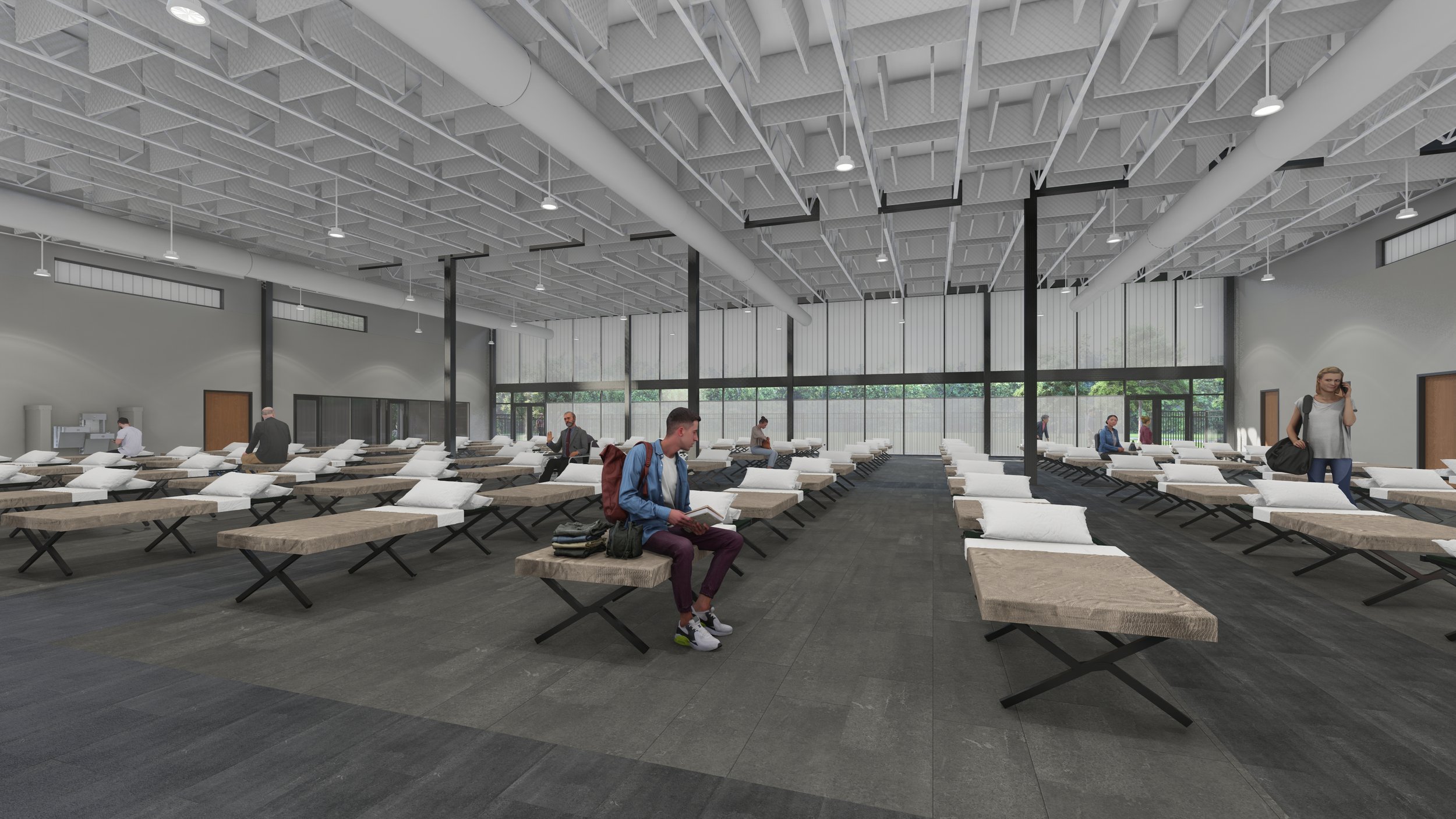Let’s partner with those experiencing homelessness in our community to create meaningful change.
Our neighbors experiencing homelessness cannot be overlooked anymore.
Homelessness is a systemic issue that requires comprehensive resources, and it’s a road to resilience that’s not meant to be walked alone.
Key Campus Buildings
Shelter
The emergency Shelter will be a low-barrier facility, operating 24/7 and 365 days a year to provide comprehensive services for individuals experiencing chronic and unsheltered homelessness in Boone County.
The shelter facility, utilizing Housing First Principles, will be 30,174 square feet with 150-bed capacity, a kitchen, laundry facilities, showers, secure storage, kennel facilities, a computer lab, and housing case management resources. The Shelter will serve 500 individuals annually, including 100 individuals daily with overnight shelter, 80 individuals daily with meals, and 60 individuals daily with day center resources.
Shelter services will include:
Mailing services
Transportation services
Laundry facilities
Showers
Secure storage
Kennel facilities
Computer lab
Open year round
Open all day 24/7
Drop-in center
Case Management
Employment assistance
Physical mailing address
Resource Center
The Resource Center building will be 18,980 square feet and house wraparound services, office space for partner agencies, a medical clinic, and the VAC agency offices. This facility will provide a transformational experience for its clients—bringing together multiple agencies wholly for the benefit of those experiencing hardship and homelessness, all without the need for transportation.
Medical Clinic
The Medical Clinic building, approximately 5,000 square feet of the total 18,980, will be leased to a medical partner. Services provided will include: medical, mental health, substance abuse, and dental.
Lives Touched
The coordinated services and resources provided at the Shelter, Resource Center, and Medical Clinic will touch approximately 10,000 people annually.
Campus Interior and Exterior Renderings








